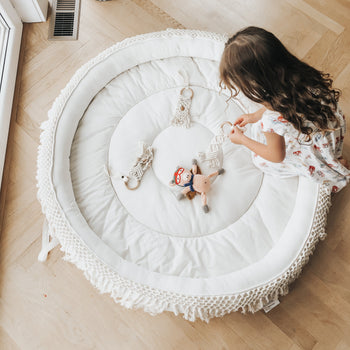4 Sustainable Lifestyle Changes to Start for Families
Teaching kids to care for the planet is one of the greatest lessons you can pass on as a parent. It instills responsibility, empathy, and a sense of stewardship in the young generations, but it also helps them understand the impact of their actions.
Sustainable lifestyle changes also help you save money and create healthier habits, which is a must in today’s economy. Plus, you will find new and fun ways to bond as a family, whether planting a garden together or finding creative ways to upcycle old items.

In this article, we put together a list of four small changes you can make as a family that will have a huge impact in the future.
1. Switch to Reusable Products
Single-use plastics, like bags, bottles, and straws, contribute massively to pollution. By simply swapping them out for reusable alternatives, like cloth shopping bags or stainless-steel water bottles, you’re already making a major change for the better.
Here are a few extra tips on how to reduce the use of single-use plastics:
● Use reusable containers to pack kids’ lunches - bento boxes or silicone snack pouches are way better than sandwich bags for school lunches and snacks on the go.
● Cloth napkins instead - washable cloth napkins are a better choice than paper ones. Plus, they look nicer!
● Buy in bulk with reusable containers - use glass jars or containers when buying grains, nuts, and other dry goods from bulk stores.
● Skip straws when possible - metal or silicone straws are a better option than plastic, but no straw at all is the way to go.
2. Start Composting Food Scraps
Instead of tossing food waste into the trash, compost it! You can use scraps like fruit peels and coffee grounds to create nutrient-rich soil for plants, whether indoor decorative ones or flowers and veggies in the garden.
Here are a few items you can compost safely at home:
● Fruit and vegetable peels - banana skins, apple cores, carrot peels, basically any leftover produce scraps.
● Eggshells - crushed eggshells add calcium to the soil, which is great for plants like tomatoes and peppers.
● Coffee grounds and filters - coffee grounds enrich compost with nitrogen, and paper filters decompose easily.
● Tea bags (unbleached) - ensure the tea bag is free from plastic lining before tossing it in your compost bin.
● Stale bread or grains - old bread, rice, or pasta (without butter or sauce) break down quickly when mixed into compost.
● Nutshells (except walnuts) - most nut shells are safe for composting.
3. Go Paperless
The average American consumes about 3.6 trees per year for paper and cardboard. Over 27,000 trees are cut down daily to make toilet paper, and around 42 million trees are cut down worldwide daily for various paper products.
The fliers you get in the mail, the bills, and even communications with the bank; things you deal with every day have a tremendous environmental impact. But in a world where you can create a digital pay stub using online tools and get your bills via email, you can make a positive impact!
Start by switching to online billing for utilities, credit cards, or subscriptions. Also, unsubscribe from unwanted catalogs and advertisements by registering with services like DMAchoice.org.
Many schools also offer apps or email options instead of sending home printed notices or forms. For moms who balance family and self-care, this method of communication with the schools or kindergartens is a lot more efficient.
4. Conserve Energy at Home
Energy and utility bills are easily the biggest monthly expenses, so you’re extra motivated to keep consumption in check.
The good news? Small changes go a long way! Turn off lights when leaving rooms or unplug devices not in use (even chargers draw energy!). Change all your lights to LED bulbs, and replace old appliances with energy-efficient ones labeled with ENERGY STAR ratings.
Adjust the thermostat by 1 or 2 degrees (you’ll see the result on the energy bill!), and wear sweaters in winter or use fans instead of AC in summer.
Wrap Up
Empowering children to embrace eco-friendly habits ensures a greener future for all. By practicing sustainable living as a family, you teach responsibility and care for the planet. Every reusable bag, conserved watt, or composted scrap shapes values that last a lifetime, creating environmentally conscious adults who will carry these lessons forward.

















